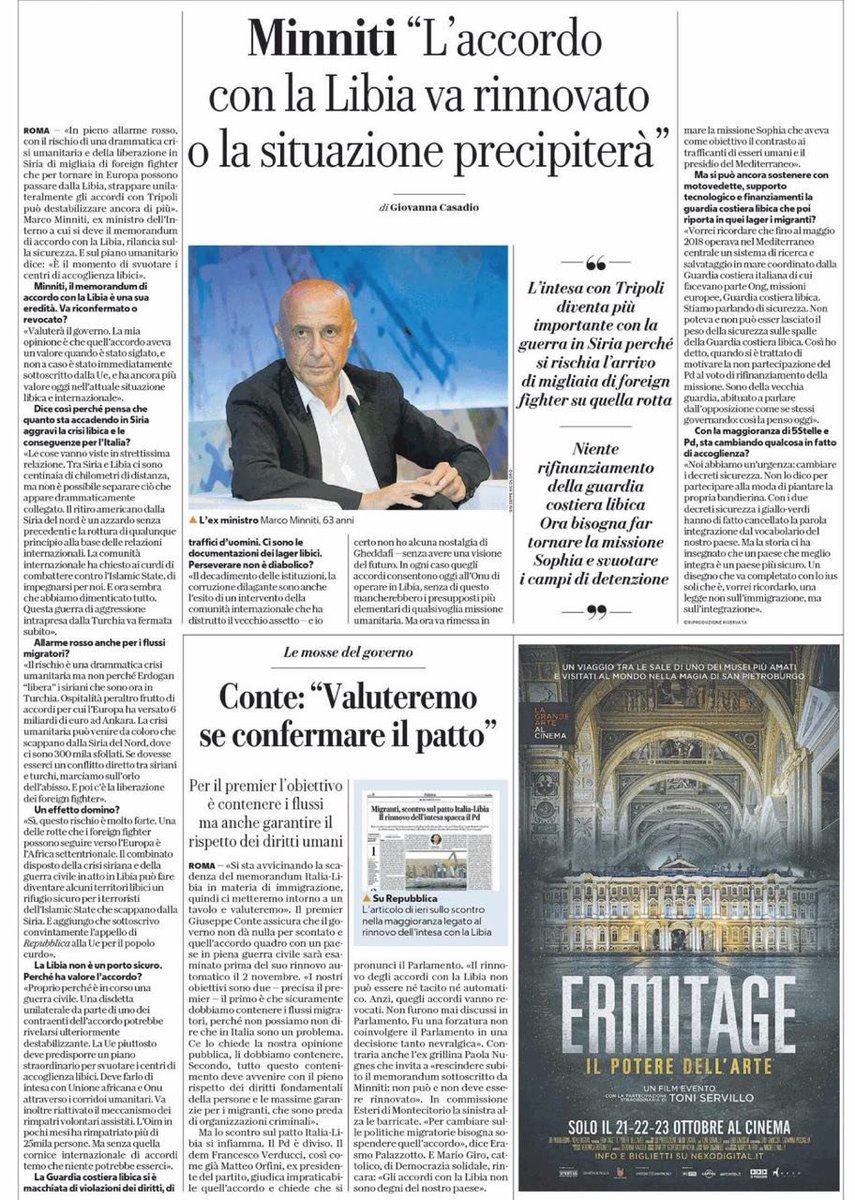It was an interesting afternoon, at the General Court of the EU, as the court held a hearing on the @seawatch_intl v. @Frontex case.
Here are a few takeaways.
1/
Here are a few takeaways.
1/
On 30 July 2021, at least 20 people were intercepted by Libyan coastguards in the central Med, in Malta's SAR region, then taken to Libya & exposed to detention & torture.
According to investigations by @hrw & @BorderForensic, @Frontex played a role.
2/
hrw.org/news/2022/12/1…
According to investigations by @hrw & @BorderForensic, @Frontex played a role.
2/
hrw.org/news/2022/12/1…
Did a @Frontex aircraft spot the boat and communicate its position to Libya? Or did they share that information with Malta, and the latter then coordinated a 'pushback by proxy'? And why didn't Frontex alert the @seawatch_intl rescue boat that was nearby?
3/
3/
These are legitimate questions, deserving an answer. And an answer would be available, in 73 documents held by Frontex.
The problem is, Frontex refuses to make their content public - not even after removing sensitive details.
4/
The problem is, Frontex refuses to make their content public - not even after removing sensitive details.
4/
That's why @seawatch_intl, which that day was at sea and not allowed to help, partnered with @fragdenstaat to take Frontex to court. And this afternoon, the only hearing in the whole case took place.
5/
5/
The hearing started with the lawyer for Sea-Watch presenting the case, explaining why the court should question the justifications given by Frontex in refusing any disclosure. The law says that comprehensive info on past and current operations must be public.
6/
6/
The lawyer representing Frontex responded by suggesting that Sea-Watch is attempting to get a "3-D scan" of Frontex operations at sea and that disclosing such information would endanger public security.
7/
7/
Although Sea-Watch had only asked for documents regarding a specific incident on a specific day, the lawyer accused the NGO of requesting "a myriad" of documents.
8/
8/
And although the information relates to a case that happened over two years ago by now, he went as far as saying that releasing relevant information would result in "a day of jubilation for all criminals in the Mediterranean".
I was a bit shocked, I must say.
9/
I was a bit shocked, I must say.
9/
I suspect many might fall for such a hyperbole. Not in a court of law, however, where people know that sensitive details (e.g. references to the identity of officers or special equipment used to investigate crimes) can be easily redacted before disclosing documents.
10/
10/
In fact, when the three judges started asking questions, the fact that Frontex cannot use "public security" as a jolly to avoid the disclosure of just all and any document was clearly raised.
11/
11/
The Frontex lawyer kept mixing half-explained legal arguments with subtle messages, building frames where "NGOs and migrants" were always accurately placed next to "smugglers and criminals". Not in one moment referred to people who died at sea or were rescued by Sea-Watch.
12/
12/
Yet, again judges could see through the smoke and mirrors, and when they asked tough questions (e.g. pointing at a specific sighting report and asking why it could not be published, after removing a couple of sensitive details), the lawyer had no real answer to offer.
13/
13/
Judges also questioned the applicants on locus standi and why there are two applicants rather than one - a technicality that hopefully will not distract from the key subject at stake.
14/
14/
And that is: can we accept that Frontex unilaterally decides whether to disclose documents that might implicate it in human rights violations, using vague justifications that are not even specifically linked to the content of each document?
15/
15/
This might look like a technical and dry area of the law, but it is crucial.
Change flourishes on top of accountability, and accountability desperately needs transparency.
16/
Change flourishes on top of accountability, and accountability desperately needs transparency.
16/
Importantly, the court obtained the 73 documents from Frontex - although they remain secret for now - so it can see for itself whether Frontex is actually safeguarding sensitive data or covering its tracks.
17/
17/
Curiously, Frontex did not think of including an index indicating the reason why each document cannot be disclosed. So, today the court ordered Frontex to provide such list within 2 weeks.
18/
18/
Then, for the judgement it will probably take a few months. It will be something to wait for.
Meanwhile, Frontex aircrafts will keep flying over the central Med.
And we will keep reminding Frontex, the EU & Member States, what they should do instead.
End/
amnesty.org/en/documents/e…
Meanwhile, Frontex aircrafts will keep flying over the central Med.
And we will keep reminding Frontex, the EU & Member States, what they should do instead.
End/
amnesty.org/en/documents/e…
Bonus track of sure relevance: see the recommendation on aerial surveillance issued by the Frontex Consultative Forum on Fundamental Rights (inside its latest annual report), which questions the lawfulness of Frontex's approach in the central Med.
frontex.europa.eu/media-centre/n…
frontex.europa.eu/media-centre/n…
• • •
Missing some Tweet in this thread? You can try to
force a refresh

 Read on Twitter
Read on Twitter




